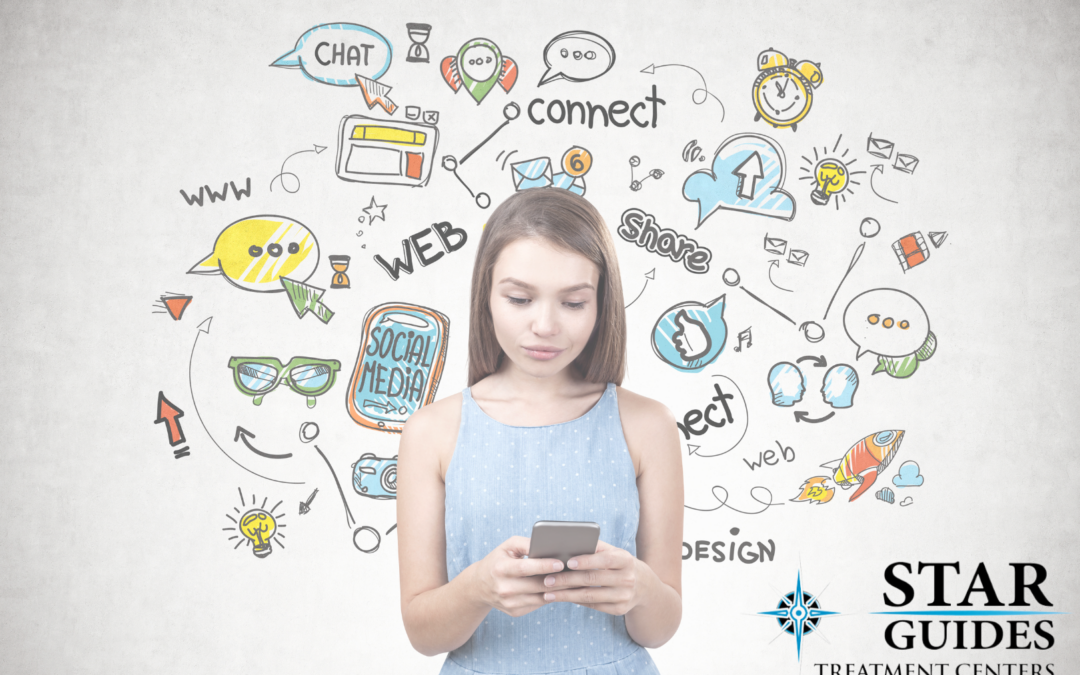In today’s digital age, social media has become an integral part of our daily lives, especially for young people. However, the rising concern over its impact on mental health has prompted experts to call for a warning label, similar to those on tobacco products. The Surgeon General has even suggested that social media platforms should come with a cautionary note due to their potential harm.
Take, for example, the story of a father and his daughter. The father’s frustration reached a boiling point when his older daughter was so absorbed in her phone that she barely interacted with the family. In exasperation, he took her phone and threw it out of the car window. Remarkably, both of his daughters’ issues with anxiety and depression seemed to vanish almost overnight. While we don’t recommend such drastic measures, this story underscores the real-life impact of excessive social media use and the growing concern among parents.
The Mental Health Risks of Social Media for Adolescents
Social media can have a detrimental effect on the mental health of teenagers and young adults. Studies have linked excessive social media use to various mental health issues, including anxiety, depression, and low self-esteem. The constant comparison to others, cyberbullying, and exposure to unrealistic beauty standards contribute to these negative outcomes.
Experts like Jonathan Haidt, a social psychologist at NYU, have highlighted how the rise of social media on smartphones with front-facing cameras has profoundly affected adolescent mental health. Haidt argues that social media is inappropriate for children, stating, “It cannot be made appropriate because what you’re basically doing is saying, ‘How about we let the entire world get in touch with you?’ There’s no way to make this safe.”
Similarly, Nicholas Kardaras, a leading psychologist, explains that increased screen time is linked to worsening psychiatric conditions such as Borderline Personality Disorder and Dissociative Identity Disorder. Kardaras and his colleagues attribute these conditions to social contagion, where online communities influence behaviors and symptoms, particularly in young people.
Dr. Justin Rowberry, a developmental-behavioral pediatrician, emphasizes that overuse of digital media correlates with higher amounts of depression. He notes that reducing digital media use can significantly decrease symptoms of anxiety and depression.
Real-life Stories of Impact
Real-life stories from parents and adolescents illustrate the challenges and successes in navigating social media and technology addiction. For example, many parents have shared their experiences of taking control of their children’s digital habits and seeing significant improvements in their mental health. These stories serve as a testament to the importance of addressing social media’s impact on young minds.
One parent, Jenet Erikson, shared, “Parents are desperate for concepts and language like this to help their children. They would benefit so much from this program – and I think it would spur much-needed conversations between parents and children.”
Another parent, Officer David Gomez, a law enforcement officer, warns about the dangers of social media, stating, “Social media is grooming your kids to be worth their body parts. Parents will have to be very diligent about teaching their own family values and morals to their kids on a regular basis to compete with society.”
Strategies for Parents
Parents play a crucial role in mitigating the negative impact of social media on their children’s mental health. Here are some practical strategies from experts in adolescent mental health and addiction recovery:
- Delay Social Media Use: The best advice is to delay social media use until at least age 16, longer if possible. This reduces exposure to harmful content and helps children develop healthier coping mechanisms.
- Set Boundaries and Monitor Usage: Establish clear rules about social media use, such as limiting screen time and ensuring that devices are not used during family meals or before bedtime. Use monitoring software like Bark to receive alerts about potential threats such as bullying, self-harm, and exposure to inappropriate content.
- Encourage Open Communication: Foster an environment where children feel comfortable discussing their online experiences. Encourage them to share any negative encounters and provide guidance on how to handle such situations.
STAR Guides Treatment Centers A Solution for Families
For families struggling with adolescents facing technology, pornography, and sex addictions, STAR Guides Treatment Centers offer specialized treatment. Their mission is to empower teens to overcome trauma and shame, fostering resilience and healthier relationships.
STAR Guides’ approach includes wilderness therapy, which challenges students and parents to step outside their comfort zones to facilitate change. The program has shown remarkable success, with 97% of students agreeing that their therapists were knowledgeable, skilled, and helpful.
One student shared, “Star Guides changed my life. When I first got into the field, I was absolutely bogus. I was lying all the time and wasn’t happy. Star Guides made me break down bit by bit in the best ways possible. I needed to be built back up, and I found that through help from the staff.”
Another parent mentioned, “We were treated with respect, dignity, and kindness by program personnel. Our therapist understood our child’s issues and helped him work through problems.”
Empowering Teens for a Better Future
Addressing the impact of social media on adolescent mental health is critical for fostering healthier, happier lives. By taking proactive steps to manage social media use, parents can significantly improve their children’s mental well-being.
If your teen is facing technology, pornography, or sex addictions, consider seeking specialized treatment at STAR Guides Treatment Centers. Their program offers intense guidance and therapy, focusing on diagnostic assessment and treatment of compulsive sexual and relational behavior issues.
To learn more or take the first step toward your teen’s recovery, contact STAR Guides at (800) 584-4629 or visit their website to submit an application. Remember, fostering healthy relationships and mental well-being is a journey, and seeking help is a powerful first step.
—
By following these strategies and seeking professional support when needed, parents can help their children break free from the social media trap and build a brighter, healthier future.

